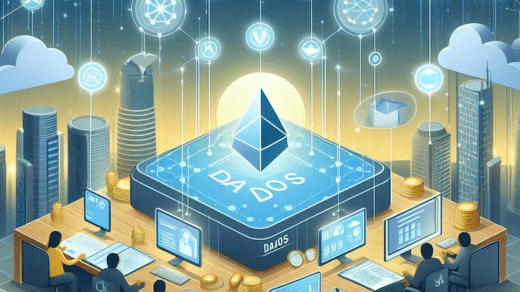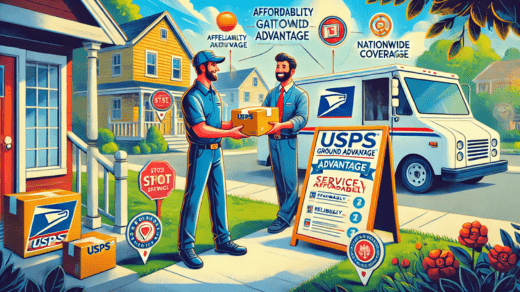By Dr. Pooyan Ghamari, Swiss Economist
In recent years, the concept of Decentralized Autonomous Organizations (DAOs) has risen from a niche technology to a revolutionary model poised to transform governance systems across industries. Unlike traditional organizations, DAOs operate without a centralized authority, empowering participants through blockchain technology to directly influence decisions, operations, and development. This transformation not only enhances transparency but also democratizes decision-making in ways previously unimaginable.
Understanding DAOs: The Basics
DAOs are self-governing entities built on blockchain technology, using smart contracts as the foundational framework for their operations. These smart contracts automate the rules and protocols, allowing DAOs to function autonomously and to execute tasks according to predefined conditions. Every decision within a DAO is reached through consensus, creating an ecosystem where power and influence are equally distributed among participants rather than centralized within an executive board or management team.
For instance, each member typically holds tokens within the DAO, allowing them to vote on key decisions. This decentralized structure fosters inclusivity and democratizes power, enabling a community-driven model that can adapt flexibly to its members’ needs and visions.
How DAOs Are Revolutionizing Governance
DAOs are reshaping governance by replacing traditional top-down management structures with a community-focused approach. Key areas of impact include:
- Transparency: With all transactions and decisions recorded on an immutable blockchain, DAOs provide unprecedented transparency. This level of openness discourages corruption, improves trust among members, and offers a public record of decisions.
- Efficiency and Cost-Effectiveness: Traditional organizations often spend significant resources on administrative and operational processes. In contrast, DAOs streamline these processes through smart contracts, which execute actions automatically when certain criteria are met, reducing costs and expediting operations.
- Inclusivity and Participation: By giving every member a say in the organization’s future, DAOs foster a culture of collaboration and inclusivity. This model contrasts sharply with traditional organizations, where decision-making power is typically concentrated within an exclusive group.
Real-World Applications of DAOs
Numerous industries are beginning to explore the potential of DAOs, from finance and technology to arts and non-profits. Some notable examples include:
- Finance and DeFi Protocols: DAOs have gained popularity in the world of decentralized finance (DeFi), where they serve as a governance model for various financial applications. Platforms such as MakerDAO allow token holders to vote on interest rates, collateral requirements, and risk management, creating a more responsive and adaptive financial system.
- Social and Environmental Initiatives: DAOs are also being used to support social and environmental causes. By providing a transparent and democratic structure, DAOs ensure that funds are distributed fairly and that initiatives align with the community’s values. For example, DAOs focused on sustainability allocate resources based on community consensus, ensuring transparency in the use of funds.
- Creative and Artistic Communities: Artists and creators have also adopted DAOs as a way to manage royalties, distribute profits, and fund new projects. These DAOs allow creators to retain greater control over their work, bypass traditional gatekeepers, and receive direct support from their community.
Challenges Facing DAOs
While the DAO model is innovative, it faces significant challenges that must be addressed for its widespread adoption:
- Legal and Regulatory Ambiguities: DAOs operate in a regulatory grey area in many jurisdictions, as laws have yet to adapt to decentralized models. This lack of legal clarity can pose challenges, especially when DAOs engage in complex financial transactions or global projects.
- Security Risks: Smart contracts, though powerful, are vulnerable to coding errors or malicious attacks. Once a smart contract is deployed, altering it is difficult, making it crucial to ensure its integrity from the outset. DAOs must invest in rigorous testing and auditing to mitigate these risks.
- Decision-Making Complexity: Achieving consensus among a large group of members can be challenging and time-consuming. This complexity can slow down decision-making processes, especially if the organization lacks clear guidelines for handling disputes or low participation rates.
The Future of DAOs: Toward a Decentralized Society
As blockchain technology advances, DAOs have the potential to shape not only the future of corporate governance but also the evolution of societies. DAOs represent a move toward decentralized decision-making, shifting away from the traditional concentration of power. While the DAO model still faces regulatory and security challenges, its potential to promote transparency, inclusivity, and efficiency makes it an attractive alternative.
The journey of DAOs is still in its early stages, yet their influence is undeniable. As legal frameworks evolve and security measures become more robust, DAOs may become integral to global governance, shaping a world where decisions are made transparently, equitably, and democratically.
For more insights and smart investment opportunities, visit the original article here from this link. You can also find out about the latest news on A Land new section. Also for the latest trends in gold investment and to begin your journey into purchasing precious metals, visit EE Gold official website.


